(n−1)!/(n−k)! can be handled by computing the product (n−k+1)…(n−1).
(n−1)! (n−1)(n−2)/4 can be handled by handling n ≤ 2 (0) and n ≥ 3
(3…(n−1) (n−1)(n−2)/2) separately.
Untested C++:
#include <cassert>
#include <cstdint>
class Residue {
public:
// Accept int64_t for convenience.
explicit Residue(int64_t rep, int32_t modulus) : modulus_(modulus) {
assert(modulus > 0);
rep_ = rep % modulus;
if (rep_ < 0)
rep_ += modulus;
}
// Return int64_t for convenience.
int64_t rep() const { return rep_; }
int32_t modulus() const { return modulus_; }
private:
int32_t rep_;
int32_t modulus_;
};
Residue operator+(Residue a, Residue b) {
assert(a.modulus() == b.modulus());
return Residue(a.rep() + b.rep(), a.modulus());
}
Residue operator-(Residue a, Residue b) {
assert(a.modulus() == b.modulus());
return Residue(a.rep() - b.rep(), a.modulus());
}
Residue operator*(Residue a, Residue b) {
assert(a.modulus() == b.modulus());
return Residue(a.rep() * b.rep(), a.modulus());
}
Residue QuotientOfFactorialsMod(int32_t a, int32_t b, int32_t modulus) {
assert(modulus > 0);
assert(b >= 0);
assert(a >= b);
Residue result(1, modulus);
// Don't initialize with b + 1 because it could overflow.
for (int32_t i = b; i < a; i++) {
result = result * Residue(i + 1, modulus);
}
return result;
}
Residue FactorialMod(int32_t a, int32_t modulus) {
assert(modulus > 0);
assert(a >= 0);
return QuotientOfFactorialsMod(a, 0, modulus);
}
Residue Triangular(int32_t a, int32_t modulus) {
assert(modulus > 0);
return Residue((static_cast<int64_t>(a) + 1) * a / 2, modulus);
}
Residue F(int32_t n, int32_t k, int32_t m) {
assert(n >= 2);
assert(n <= 100000);
assert(k >= 1);
assert(k <= n);
assert(m >= 2);
assert(m <= 1000000000);
Residue n_res(n, m);
Residue n_minus_1(n - 1, m);
Residue n_minus_2(n - 2, m);
Residue k_res(k, m);
Residue q = QuotientOfFactorialsMod(n - 1, n - k, m);
return q * (k_res - n_res) * n_minus_1 +
(FactorialMod(n - 1, m) - q) * k_res * n_minus_1 +
(n > 2 ? QuotientOfFactorialsMod(n - 1, 2, m) *
(n_res * n_minus_1 + Triangular(n - 2, m))
: Residue(1, m));
}
